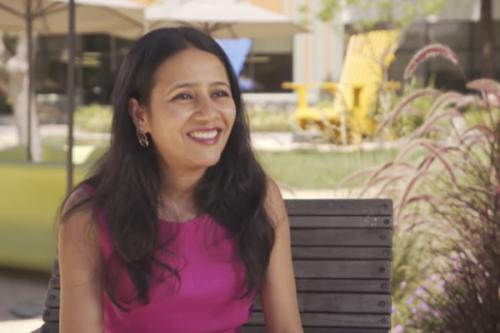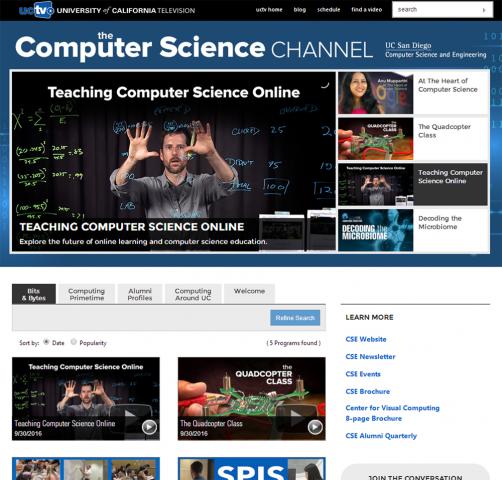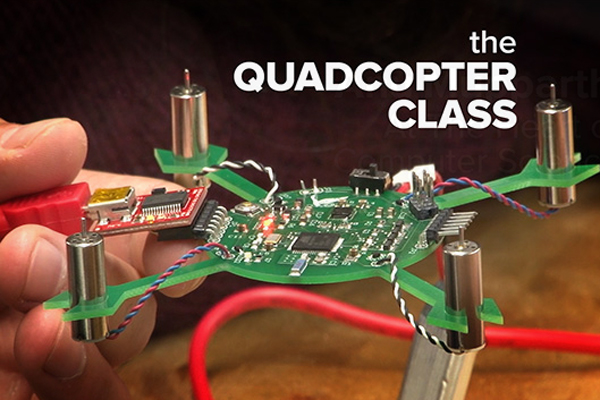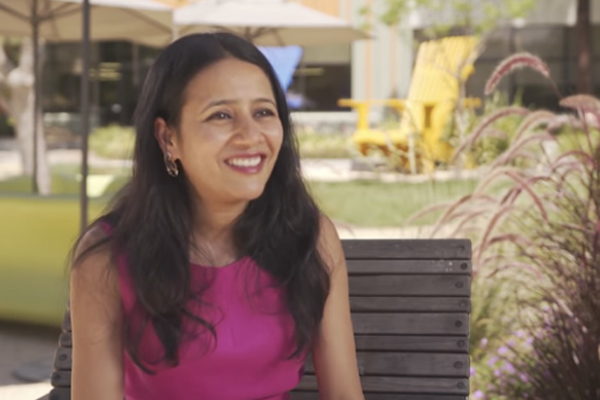
University of California Television (UCTV) and the Computer Science and Engineering (CSE) department at the University of California San Diego have launched The Computer Science Channel online. The new video channel began service October 1, 2016, with a slate of newly-produced and existing content.
 “Our faculty are directing research that is transforming the world in a variety of ways and have made us one of the top research departments worldwide,” said CSE Chair Dean Tullsen in a welcome video for the channel. “We have a dynamic student population at both the graduate and undergraduate levels, who are making a difference both on campus and in a variety of leadership positions after they graduate.”
“Our faculty are directing research that is transforming the world in a variety of ways and have made us one of the top research departments worldwide,” said CSE Chair Dean Tullsen in a welcome video for the channel. “We have a dynamic student population at both the graduate and undergraduate levels, who are making a difference both on campus and in a variety of leadership positions after they graduate.”
The computer-engineering professor went on to note that computer science is increasingly integrated into our daily lives. Said Tullsen: “This channel is bringing stories about how computer science is revolutionizing many industries and disciplines, from computer graphics to computational biology.”
The Computer Science Channel aims to connect viewers to the world of computing and its impact on the world around us. New content produced for the Channel in a partnership between CSE and UCTV will also begin airing on UCTV and UCSD-TV over cable and online television services such as Roku and Amazon Fire in the near future.
“UCTV is looking forward to presenting the people and stories from UC San Diego and around the University of California, that make computer science such an important and fascinating field,” says UCTV Director Lynn Burnstan.
New video features debuting on the channel in October include a series called Bits & Bytes, a collection of short features (generally from three to 20 minutes in length). They include a 14-minute report on “Teaching Computer Science Online” – about UC San Diego’s pioneering computer scientists who are in the vanguard of a new movement to offer high-level computer science courses (known as massive open online courses, or MOOCs) to meet some of the pent-up demand for high-level computer science education around the world. So far, over 1,000,000 learners around the world have registered to take the UC San Diego faculty-developed courses via the two largest online education platforms, Coursera and edX. Some of the UC San Diego MOOCs have surpassed 250,000 learners each.
 The report features interviews with CSE professors Pavel Pevzner, Ravi Ramamoorthi, Scott Klemmer, Christine Alvarado and Mia Minnes, as well as Beth Simon, a professor who recently moved from CSE to the Education Studies program to help UC San Diego faculty to adopt some elements of online learning to their courses in the classroom. (Simon spent the last two years on leave at… Coursera.)
The report features interviews with CSE professors Pavel Pevzner, Ravi Ramamoorthi, Scott Klemmer, Christine Alvarado and Mia Minnes, as well as Beth Simon, a professor who recently moved from CSE to the Education Studies program to help UC San Diego faculty to adopt some elements of online learning to their courses in the classroom. (Simon spent the last two years on leave at… Coursera.)
Bits & Bytes also features a six-minute interview with CSE professor Steven Swanson and students in his course for seniors, dubbed “The Quadcopter Class" (pictured at left). In it, students build tiny quadcopter drones as a capstone project, and in the process get comprehensive experience in conceiving, designing, building and programming a remote-controlled quadcopter. “Some of us knew how to do the software, some of us knew how to do the hardware. I came in knowing a lot about quadcopters but not too much about the hardware or software behind them,” says undergraduate David Smith. “It’s a really good class to learn something and to do a fun project.”
 The Computer Science Channel will also document where some of the department’s students go after graduation. For the October launch, the Alumni Profiles section poses the question: How does a single mom on her own, far from home, achieve success in the world of computer science? In her own words, CSE alumna Anu Mupparthi (at right) (B.S. ’08, M.S. ’11) describes the special roles the department and the field of computer science played in her development from single-parent computer novice to software engineer at Google Photos.
The Computer Science Channel will also document where some of the department’s students go after graduation. For the October launch, the Alumni Profiles section poses the question: How does a single mom on her own, far from home, achieve success in the world of computer science? In her own words, CSE alumna Anu Mupparthi (at right) (B.S. ’08, M.S. ’11) describes the special roles the department and the field of computer science played in her development from single-parent computer novice to software engineer at Google Photos.
The joint CSE and UCTV channel also features Computing Primetime, a year-old series of long-form programs (30 to 60 minutes in length) about how computer science is interacting with and transforming many other disciplines and sectors.
Among the Computing Primetime episodes now available on The Computer Science Channel:
- “Decoding the Microbiome”, a conversation between CSE professors Larry Smarr and Rob Knight about the role that computing, cyberinfrastructure and gene sequencing play in helping better understand the role the microbiome plays in human health. (Smarr also directs Calit2, while Knight directs the new Center for Microbiome Innovation.);
- “Visual Computing”, about the new, interdisciplinary Center for Visual Computing with its director, CSE Prof. Ravi Ramamoorthi, CSE lecturer Jurgen Schulze, and Cognitive Science professor Zhuowen Tu;
- “Computer Engineering for Exploration”, a discussion between CSE Prof. Ryan Kastner and Qualcomm Institute research scientist Albert Lin; and
- “Cyber Security: Planes, Trains and Automobiles”, in which former CSE Chair Rajesh Gupta talks with two of UC San Diego’s top cyber security experts, CSE professors Stefan Savage and Hovav Shacham.
Another section of the Channel is dedicated to Computing around UC, featuring video segments and programs related to computer science and produced at any of the 10 University of California campuses. The initial programming includes pieces about two UC San Diego researchers: the aforementioned Rob Knight of CSE and Pediatrics, who won the 2015 Vilcek Prize for Creative Promise in Biomedical Science; and Jacqueline Kerr, a researcher in the Qualcomm Institute’s Center for Wireless and Population Health Systems. Kerr’s hour-long presentation focuses on what wearable cameras and GPS can tell us about human behavior.

